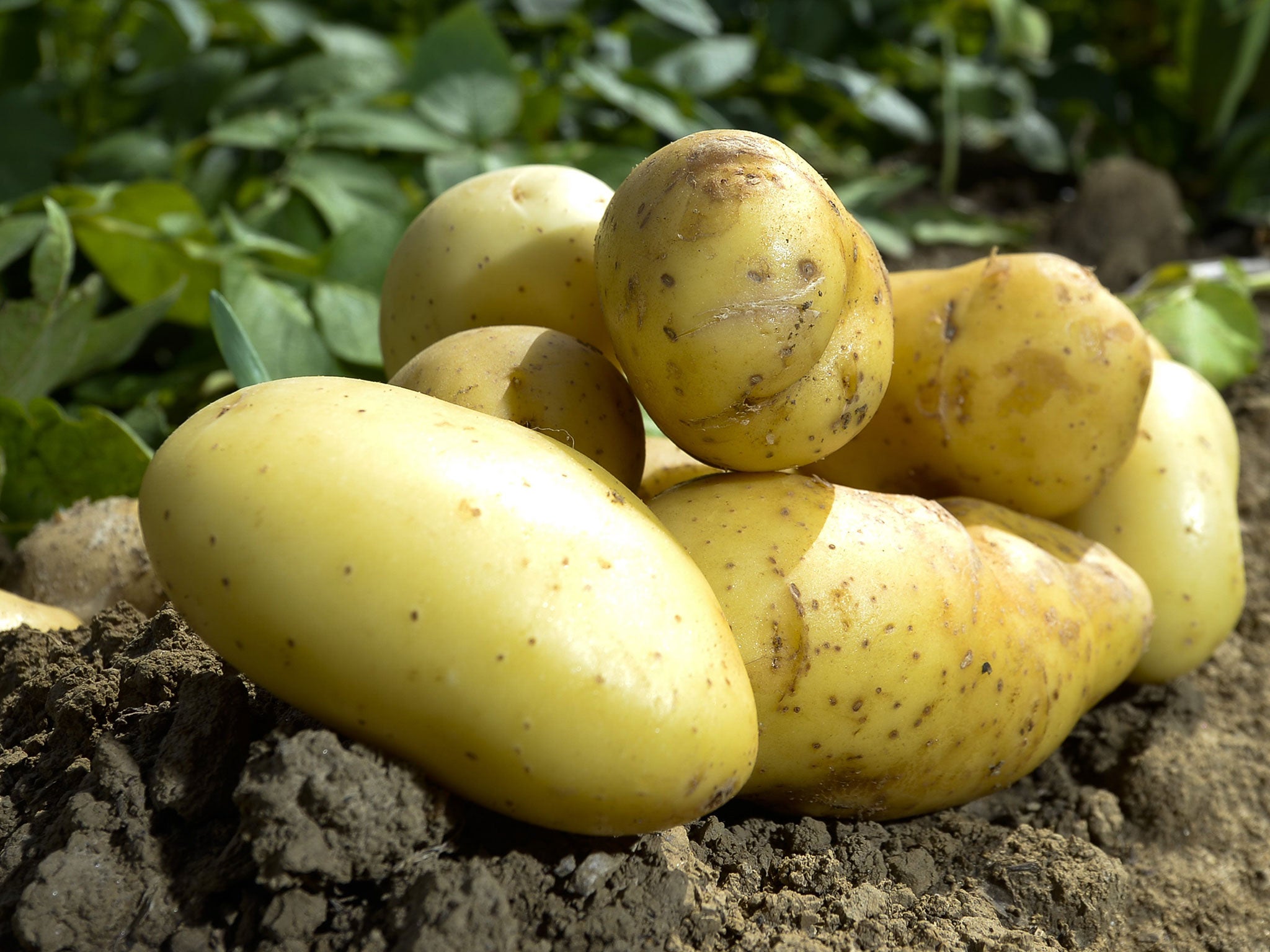Eating potatoes could increase risk of high blood pressure, study finds
Four servings a week of baked, boiled, or mashed potatoes is linked to an 11 per cent increased risk of high blood pressure

Your support helps us to tell the story
From reproductive rights to climate change to Big Tech, The Independent is on the ground when the story is developing. Whether it's investigating the financials of Elon Musk's pro-Trump PAC or producing our latest documentary, 'The A Word', which shines a light on the American women fighting for reproductive rights, we know how important it is to parse out the facts from the messaging.
At such a critical moment in US history, we need reporters on the ground. Your donation allows us to keep sending journalists to speak to both sides of the story.
The Independent is trusted by Americans across the entire political spectrum. And unlike many other quality news outlets, we choose not to lock Americans out of our reporting and analysis with paywalls. We believe quality journalism should be available to everyone, paid for by those who can afford it.
Your support makes all the difference.Eating potatoes or chips increases the risk of high blood pressure, new research suggests.
Four or more servings a week of baked, boiled, or mashed potatoes is linked to an 11 per cent increased risk of high blood pressure compared with less than one serving a month in women, researchers found.
They also found that men and women who ate four or more servings a week of French fries had a 17 per cent higher risk of high blood pressure.
But eating crisps had no effect, the study, published in the British Medical Journal (BMJ), found.
The researchers also noted that replacing one serving a day of potatoes with one serving of non-starchy vegetables led to a 7 per cent drop in the risk of high blood pressure.
The team, from the Brigham and Women's Hospital and Harvard Medical School in Boston, Massachusetts, suggested the high glycaemic index (GI) of potatoes could be to blame.
High-GI foods release energy more quickly and therefore raise blood sugar more quickly.
The team said high-GI meals had been associated with dysfunction of cells in the body, oxidative stress, and inflammation, "all potentially important mechanisms in the development of hypertension (high blood pressure)".
The team took account of factors such as the weight of people in the study, but the results still held true.
Overall, the experts analysed data from more than 187,000 men and women from three large US studies over 20 years.
In January, a separate study found that women who enjoy potatoes may be at increased risk of suffering diabetes in pregnancy.
Those who eat two to four servings of potatoes a week may be around 27 per cent more likely to suffer diabetes in pregnancy, even when taking into account their weight, it said.
Even one serving a week appeared to increase the risk by 20 per cent compared with women eating less than one serving a week, once body mass index (BMI) was taken into account.
Those eating more than five servings a week had a 50 per cent increased risk.
When women substituted two servings a week with other vegetables, pulses such as beans, lentils and peas, and whole grain foods, they had a 9 per cent to 12 per cent lower risk.
Commenting on the study, Victoria Taylor, senior dietitian at the British Heart Foundation, said: "This type of study can only show an association, not cause and effect. We cannot therefore conclude thatpotatoes cause high blood pressure and we cannot explain the cause of the effects seen in the study among higher consumers of potatoes.
"Although a higher consumption of potatoes, such as mashed potatoes or French Fries, was associated with high blood pressure, it is still possible that other factors in the diet or lifestyle are also affecting the results, especially as both the blood pressure and food frequency were self-reported.
"It is also important to note this is a study from the US where dietary guidance and recommendations vary from the UK. For example, in the UK white potatoes are not included in the 5-a-day recommendations for fruit and vegetable consumption. While potatoes are part of the starchy carbohydrates section of the Government's Eatwell guide, we must remember that, as with all foods, it's important to consider the overall balance of the foods we eat."
Tom Sanders, emeritus professor of nutrition and dietetics, at King's College London, said: "I don't think this study should be used to discourage people from eating potatoes. In the UK, potatoes are more widely consumed than in the USA and make an important contribution to the intake of vitamin C and potassium. The vitamin C and potassium content is best retained when the potatoes are baked or boiled with skins on."
Dr Louis Levy, head of nutrition science at Public Health England, said: "The Eatwell Guide shows that we should base our diet on starchy foods such as potatoes, which are best eaten with the skins on to increase fibre consumption. How you cook and what you eat with your potatoes can increase the salt, fat and sugar in your diet. So keeping an eye on these as well as stopping smoking and being more active will help reduce the risk of developing high blood pressure."
Press Association
Join our commenting forum
Join thought-provoking conversations, follow other Independent readers and see their replies
Comments